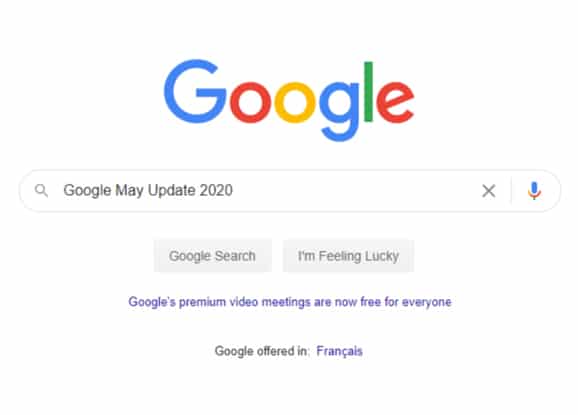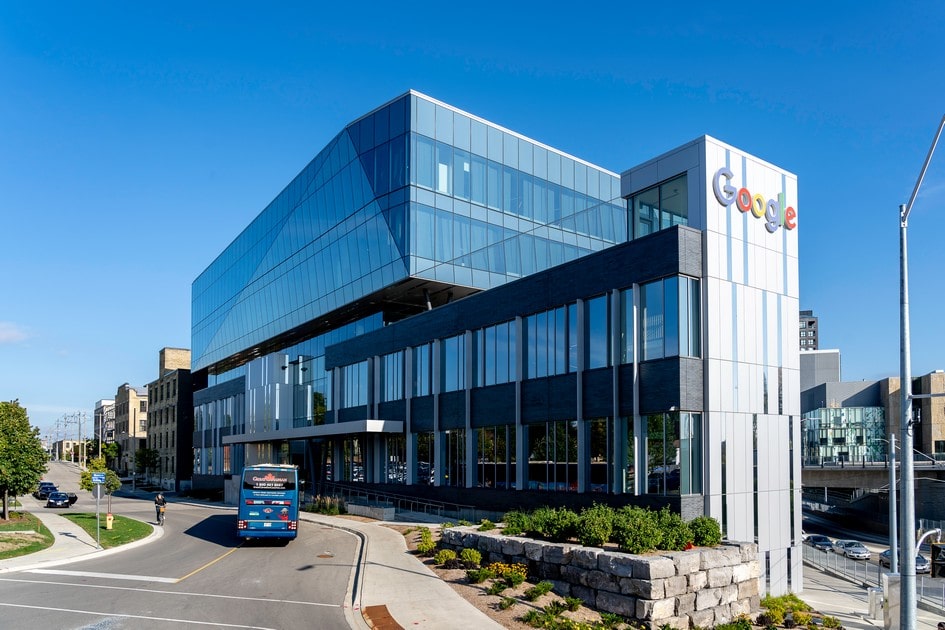Google’s May 2020 Update – How It Is Affecting the Rankings
May 8, 2020 | 4 MINUTES TO READ

Summary: On May 4th, Google announced a new update to its algorithm. They also said that the effects of this update might take a few weeks to settle down. While most updates settle rather quickly with only a few minor changes here and there, it is becoming clear that this update is different, and it is big.
Who Is Impacted by This Update?
The changes this update brings have been felt by many, and the results are changing day to day. Some areas that have seen an impact include health websites and local search businesses. Online areas that have experienced the most change, whether positive or negative, include:
- Fitness
- Nutrition and recipes
- Natural medicine
- News
- History
- Science and medical news
- Banking and finance
- Music and entertainment
Many companies that cater to these web interests have experienced either tremendous growth or substantial drops in their online visibility and SERP positioning. For instance, gym and fitness website PlanetFitness.com experienced a 42.74% drop, while the automotive news site and accompaniment to the popular show Top Gear, TopGear.com, saw an increase of 85.59%.
Who Do Updates Target?
It is important to keep in mind that when Google releases a broad core update such as this one, it is not generally targeting a specific industry. The updates to the algorithm may impact an industry, though.
Typically, the updates Google rolls out tend to focus on trying to better understand search intent, what a webpage is about, and how that page may be relevant to what someone is searching for. These new understandings can change how a site is ranked.

For example, if Google has determined that people searching for health information tend to want scientific answers, it will negatively affect sites that provide natural remedies. If you find that your company or industry has been impacted by an update, search intent may be the reason.
It is also important to know that these updates are not designed to reward any industries, either. Google continues to rank websites based on their relevancy to the search query.
Why Updates Affect Rankings
A major contributing factor to the volatility of rankings following an update is the time it takes the data centers around the world to receive the new information. When you are browsing for something online, you could be reaching a data center that has not been updated yet and is presenting you with old data.
Another issue that affects the rankings is how many things are being changed at once. Many of these things are modified and adapted over time based on feedback measured by Google engineers. If they find something was not working as planned, or something was unintentionally affected that should not have been, they may modify or reverse the change.
What Are Search Results Showing?
Thin Content is Out
Thin content is defined as content that has no value. It is of poor quality, does not reflect the user’s search intent, and is often not relevant to what they were looking for. It can negatively affect your brand image and lead to fewer conversions from customers.

In order to improve the content on your website, you need to know what Google considers to be thin content on your site, analyze your website content, and optimize it to the best of your abilities.
With this new update, landing pages with thin content that were previously able to maintain good rankings due to internal link dynamics or a variety of off-page factors are now finding it more difficult to maintain these rankings.
Multiple Search Intents
If a user were to search for something that could have multiple intents or it is not made clear exactly what the search intent was, it can affect the rankings of pages. In this case, many landing pages that were considered to be weaker were shown to have lost ranking positions. While this is not a new trend, it is becoming more common as Google continues to update.
Local Search
The position of sites within local search rankings has been affected. In this update, sites that obtained a high rate of link acquisitions were ranked highly. Directory sites in these markets also experienced the same boost in rankings.
SERP Feature Changes
Companies that use schema, snippets, carousels, and special feature SERP features have been seeing unpredictability in their traffic as well. If you find yourself experiencing this, taking some time to review the changes in SERP features may provide you with some answers about what has changed. Conducting a SERP feature gap analysis can also help you avoid wasting time trying to determine where gains and losses to your traffic are coming from.
What to Take Away from These Updates
It may take a while for the search results to settle down following this update. It could help you to take some time to look and understand which sites have improved and why.
For some industries, the change in rankings could be related purely to search intent. If people are not looking for what you provide, but instead what a competitor offers, your rankings will fall. Additionally, it could be an issue of credibility and accuracy. Keep in mind that if you lose rankings, it may not be because Google sees you as less credible or accurate, but that it views somebody else as more credible and accurate.
When reflecting on why your site or page lost rankings, it might have less to do with what is wrong with your site and more about what is right with the sites that have improved their rankings.
Don't stop the learning now!
Here are some other blog posts you may be interested in.
VIEW ALL BLOG POSTS-
Important Lessons for Marketing Your Business in a Post-Coronavirus World
Like many of you reading this, I’m writing this blog post in self-isolation. Not because of any viral symptoms …
READ MORE -
How to Know If Core Web Vitals Are Affecting Your Search Rankings
If you follow marketing news in any capacity, you have probably heard about the new core web vitals update (also called the page experience update). This search …
READ MORE -
Preparing Your eCommerce Business for the Cookieless Future
Now that Google has announced that their Chrome browser will no longer support third-party cookies in 2023, some …
READ MORE









